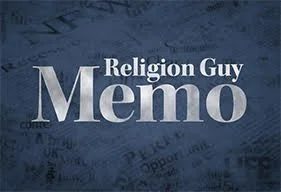Panelists on the final episode of the media-analysis show “Reliable Sources,” axed after three decades by CNN’s incoming management, gave voice to widespread angst about America’s news and information environment.
Rampant misinformation is among the top concerns these days. Social media have blocked COVID discussions regarded as misleading. The Biden Administration launched an Orwellian-sounding Disinformation Governance Board under the Department of Homeland Security, but quickly shelved the effort.
By the way, “misinformation” means incorrect knowledge of any sort, whereas “disinformation” is false knowledge that’s spread deliberately.
One commentator recommends that we all chill.
Only sheer “arrogance” could create “confidence that we can accurately and productively root out misinformation,” contends Isaac Saul, who heads up www.ReadTangle.com, an online newsletter that offers non-partisan summaries of the best arguments from various sides of political issues. (Check it out.) He titled a July article “Misinformation Is Here To Stay (And That’s OK).”
The Guy does not necessarily embrace all of Saul but considers his contentions important for media toilers, critics and consumers to ponder. Thus this Memo condenses the essence as follows.
For starters, Saul cleverly notes that many things each of us believes right will prove “utterly wrong” and history proves it. As recently as a century ago, doctors believed in bloodletting cures using leeches or scalpels. U.S. women had just obtained the vote over against the common belief they were too emotional. The Milky Way was the outer limit of the universe.
Only two decades ago, experts were telling us mass opioid prescriptions were safe and that switching from paper to plastic bags would save trees and thus help the environment. More recently, Twitter and Facebook barred accurate New York Post reportage on Hunter Biden’s loaded (in several senses of that word) laptop, and established sources branded as a conspiracy theory COVID’s origin in a China lab leak, now regarded as possible or even likely. Add your own examples.
“Much of what we believe right now” will similarly be recognized as “absurd” misinformation in 20 or 100 or more years, but we cannot know what now. This is why journalists are supposed to be comfortable with debates featuring competing points of view.
Proposed remedies suppose that misinformation “can and should be censored,” but to Saul falsity is instead “a troubling but necessary part of our political discourse. Attempts to eliminate it carry far greater risks than attempts to navigate it” and “would almost certainly restrict our continued understanding of the world around us.”
“Apart from being deeply undemocratic, the desire for major corporations or governing entities to root out misinformation — even the pernicious ‘anti-science’ kind — is itself profoundly anti-scientific.” That’s because correct scientific method spurns dogma, perpetually questions assumptions and tests hypotheses over and over and over.
Zealots argue that harsh new tactics are required because of the unprecedented speed and spread of unverified claims on the Internet.
However, Saul says people raised the same alarms with the advent of the printing press and radio. “Trying to slow the advances of information sharing is futile and counter-productive.” As Mark Twain said, “a lie can travel halfway around the world before truth can get its boots on.” (Or did he? That may well be misinformation!)
So, can nothing be done to combat dangerous errors, whether intentional or not?
Saul opposes journalists who think “ignoring misinformation is the way to beat it.” Rather, he says, provide “more honest and open-minded coverage.” In doing so, “break down walls.” Don’t berate “conspiracy theories.” For instance, with election denialism in 2016 or 2018 or 2020, acknowledge reasons people might reasonably be suspicious and calmly invite them to consider facts. Here’s how Saul himself handled issues days after the 2020 vote.
Educate youngsters on how to “spot lies, think critically, and ask questions,” using programs like those at Media Literacy Now. As for social media, instead of censorship or de-platforming, the cyber-pros need to provide audiences full context on what specific source, perhaps a paid or self-interested group or a pathetic mischief-maker, lies behind what they post.
A personal note: The Guy usually ignores a newly encountered website if it does not post an actual street address, phone, e-mail, names of leaders, links to established media coverage and material about its history and purpose that can then be verified by further online research.
On a different media topic – ask yourself this question: Is one of America’s chief problems mass anxiety and anger that’s being fueled by toxic “media overconsumption”? So asserts noted Fox News refugee Chris Stirewalt, out Tuesday with the new book “Broken News: Why the Media Rage Machine Divides America and How to Fight Back” (Center Street). The Dispatch, where he now works, has posted an excerpt you can skim.
FIRST IMAGE: Uncredited illustration used with a feature entitled “Over 75% of people lie on social media” at the Naked Security website.


